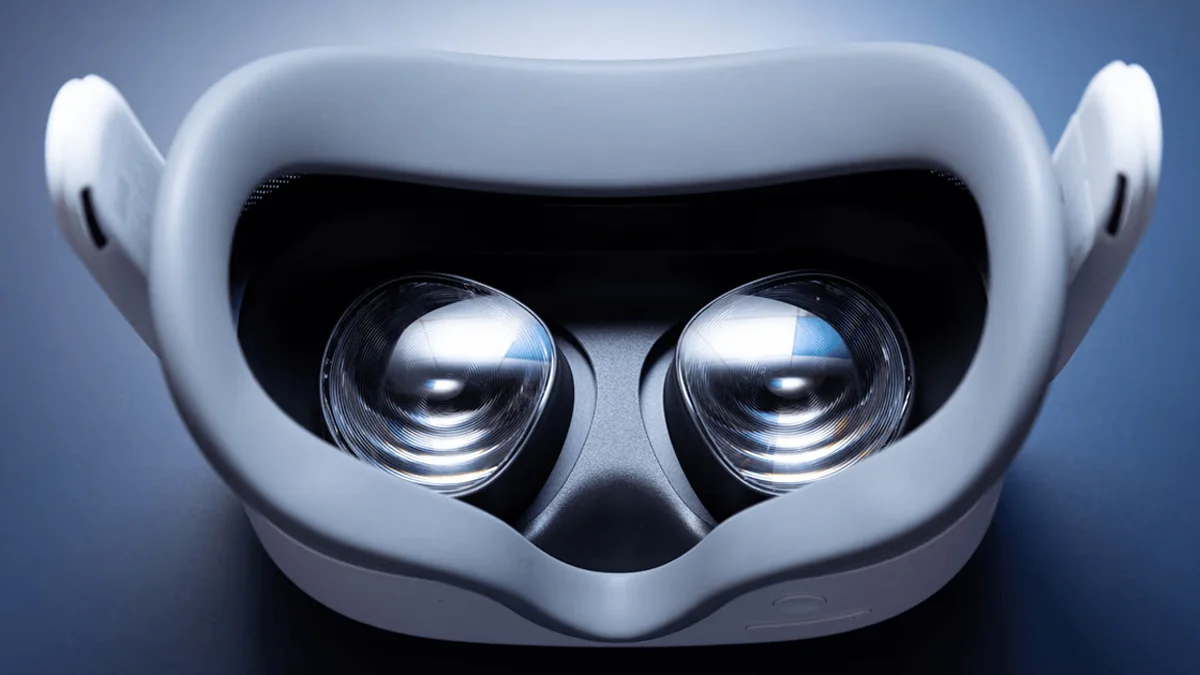Necessary Always Active
Necessary cookies are required to enable the basic features of this site, such as providing secure log-in or adjusting your consent preferences. These cookies do not store any personally identifiable data.
|
||||||
|
||||||
|
||||||
|

Meta has unveiled a working prototype of AR glasses. The tech giant showcased the glasses that it calls Orion on Wednesday, September 25 during its annual Connect Event held at its California headquarters. Meta’s Connect Event AR glasses reveal pushed the company’s share prices up by 2.2%.
Reuters reported that the AR glasses launch happened as Meta laid out its vision for developing products that will bridge the gap between the real world and the virtual one.
“This is the physical world with holograms overlaid on,” Meta CEO, Mark Zuckerberg said during the event.
Meta’s Orion glasses are made from magnesium alloy. The company designed custom silicon to power the glasses. Zuckerberg referred to Orion as a dev kit, adding that Meta will be working to make the glasses smaller, affordable, and sleeker. Users can interact with AR glasses through voice, hand-tracking, and a neural interface on the wrist.
Zuckerberg showed how Meta’s first true AR glasses can display several windows with Messenger and WhatsApp video-calls, texts, and Instagram reels. However, his presentation only displayed a few details about Orion’s capabilities. The video highlighted positive reactions by testers who included Nvidia CEO, Jensen Huang.
Users can interact with the AR glasses through voice, hand-tracking, and a neural interface on the wrist. Other big tech companies have attempted to develop AR devices before with little success, Google’s Glass glasses is one of the most notable failures.
Meta’s reveal of AR glasses has been a long process. When he first pivoted the company towards creating metaverse systems in 2021, CEO Zuckerberg positioned AR technology as great work and even changed the company name to Meta.
The company has experienced technical challenges with the project as acknowledged by its head of Metaverse Reality Labs, Andrew Bosworth. In November last year, Bosworth indicated that Meta was facing challenges developing a market-ready AR product.
Since 2021 Meta has made heavy investments to build its metaverse system. This includes financing AI, AR, and other kinds of metaverse technologies. These investments have pushed its 2024 capital expense projections to a high of $37 billion to $40 billion. In quarter one of this year, the company’s metaverse unit, Reality Labs recorded a loss amounting to $8.3 billion and a total of $16 billion last year.
Meta plans to distribute the first generation of AR glasses internally and to selected developers this year. Each device cost the company thousands of dollars to produce. The initial shipment of commercial Meta AR glasses will be made in 2027.
The social media giant anticipates that by this time, technical improvements to the product will reduce production costs. PP Foresight Analyst, Paolo Pescatore said Meta’s vision to commercialize VR and AR products is possible. He however noted that most people are still wary of AI and need to be convinced.
Meta’s Connect Event kicked off with a showcase of its expanded bet on AI. The social media presented multiple product offerings powered by its ChatGPT-like chatbot. It also announced plans to include personalized images generated by the bot on Instagram and Facebook feeds.
Meta also unveiled various AI software enhancements during the event. These include audio upgrades of the company’s digital assistant, Meta AI. The tech giant said that Meta AI will now respond to voice commands. Users will have the option of making the AI assistant sound like celebrities as it features voices of Judi Dench, John Cena, Kristen Bell, and others.
“I think that voice is going to be a way more natural way of interacting with AI than text,” Zuckerberg said.
Meta will be adding video and real-time language translation capabilities to its AI assistants later this year saying over 400 million people use Meta AI each month.
Meta also highlighted AI Assistants in its Ray-Ban smart glasses that enable users to stream music from Spotify and scan QR codes through voice prompts. The company unveiled Quest 3S, a product line of mixed-reality headsets. The company discontinued Quest 2 and Quest Pro devices at the event.
In line with its AI model sharing strategy, Meta released three latest versions of Llama 3 models at the 2024 Connect event. Two of these models understand both text and images. The third one is a basic text-only model that can run entirely on user devices. Meta first revealed the open source model in July this year. Llama allows companies to train it on custom data and modify it to suit their needs.
The Meta Connect event highlighted a future where AR, VR, and AI converge to create an immersive, highly interactive world. From the next generation AR glasses to the AI-powered chatbots unveiled at the event, Meta is paving the way for a digital ecosystem that blurs the line between the virtual and real world.